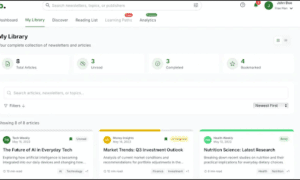Learning how to play an instrument is really one of the simple joys of life. It’s something that millions of people do each year and a skill that plays a unique and important role in human culture. Music itself is essential to people, cultures, and societies. Entire eras are marked by certain styles and individual artists that can define moments in time like few can. The incredible part about music and learning its many disciplines is the most successful musicians, singers, or composers all started off without knowing a thing about music or how to create it.
While there is always something to be said for natural talent, every single person who learned music started at ground zero and worked their way from there. This is one of the reasons why learning how to play music not only can bring a person a lot of personal joy and satisfaction, but introduce them to a whole community of people who know how to support each other as they grow.
If you have been wanting to take that next step in your own personal growth and learn how to play the guitar, here are some tips to help you get started on this incredible journey!
-
Get a Guitar That You Feel Comfortable With
Okay, so this might seem like an oversimplification, but comfort is going to be your friend, especially during the beginning stages of learning any instrument. Yes, in most cases the main factor for an ideal instrument when it comes to a brand new student is going to be price point – but you should never sacrifice comfort. While getting a cost-effective beginner instrument is wise, making sure you like the way the guitar feels, looks, and sounds is very important.
Being comfortable with your beginner guitar is key as it eliminates some of the challenges of learning the instrument. The technical side of learning how to play guitar is quite the learning curve. From learning the basics of using a guitar tuner to your first scale, there will be a lot of new, consistent skills to learn from scratch. Having a comfortable guitar that feels good in your hands will help that process seem less daunting, and more inviting. A guitar that is possibly too big, small, heavy, or awkwardly shaped for your body, may just add another element of challenge to an already challenging process.
-
Have Proper Expectations
One of the most important things to remember when it comes to learning any kind of new skill is to manage your expectations. Learning a guitar will take a lot of time, consistency, and commitment. Your hands will most likely feel achy and even a bit tired at first, and it may seem like an impossible feat to accomplish. However, managing your expectations is a key part of staying motivated to keep pursuing your goals and passion.
This looks like setting up achievable goals, whether that’s with an instructor that can help guide your discipline and expectations or learning on your own. If you are learning on your own, it’s very important to map out a timeline of accomplishment so you can have a goal to move toward. If you are self-teaching, one pointer is to ask for advice or help from people who know how to play the guitar, so they can give you direction on what goals you should be setting for yourself as a beginner.
-
Pick Easy Songs
Yes, there are a lot of fundamentals to cover right off the bat when it comes to learning any instrument. Chords, scales, finger placements – the whole nine yards need to be learned; however, never underestimate the reward of being able to play a song! Learning easy, beginner songs on your guitar will motivate you to keep working on the dryer, more discipline-heavy mechanics of learning the instrument.
As soon as you can get some basic chords under your belt, find easy songs that utilize these chords to incorporate into your practice time.
Conclusion: Don’t Give Up
The most important thing to remember when it comes to learning an instrument is to not give up. The journey looks different for everyone, so never compare yourself to another musician or artist. Enjoy your unique experience with the guitar, and keep coming back to your disciplines. Over time, putting in the work and the practice will pay off and you’ll be able to succeed in your goals and achieve the level of skill you want to have!



































